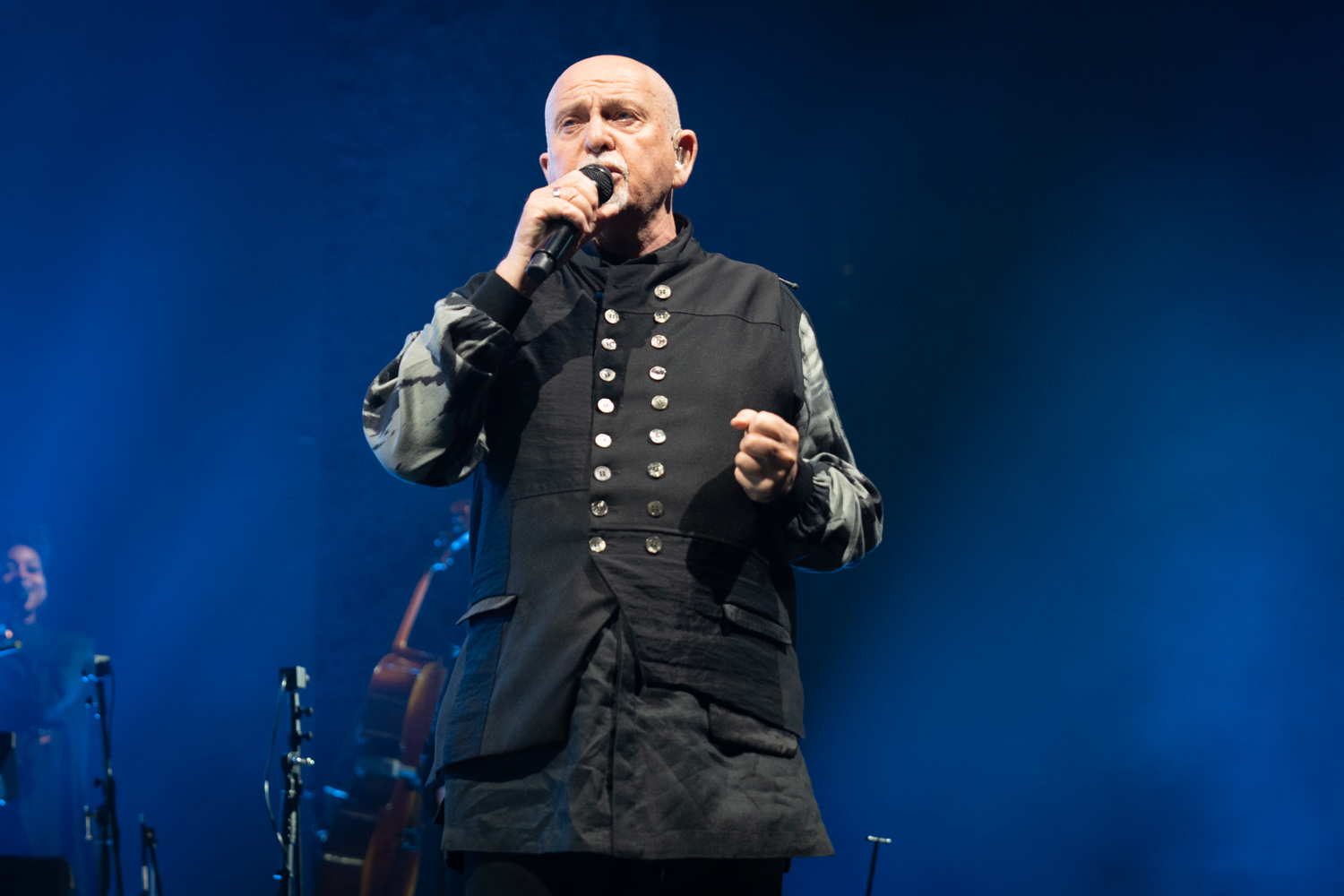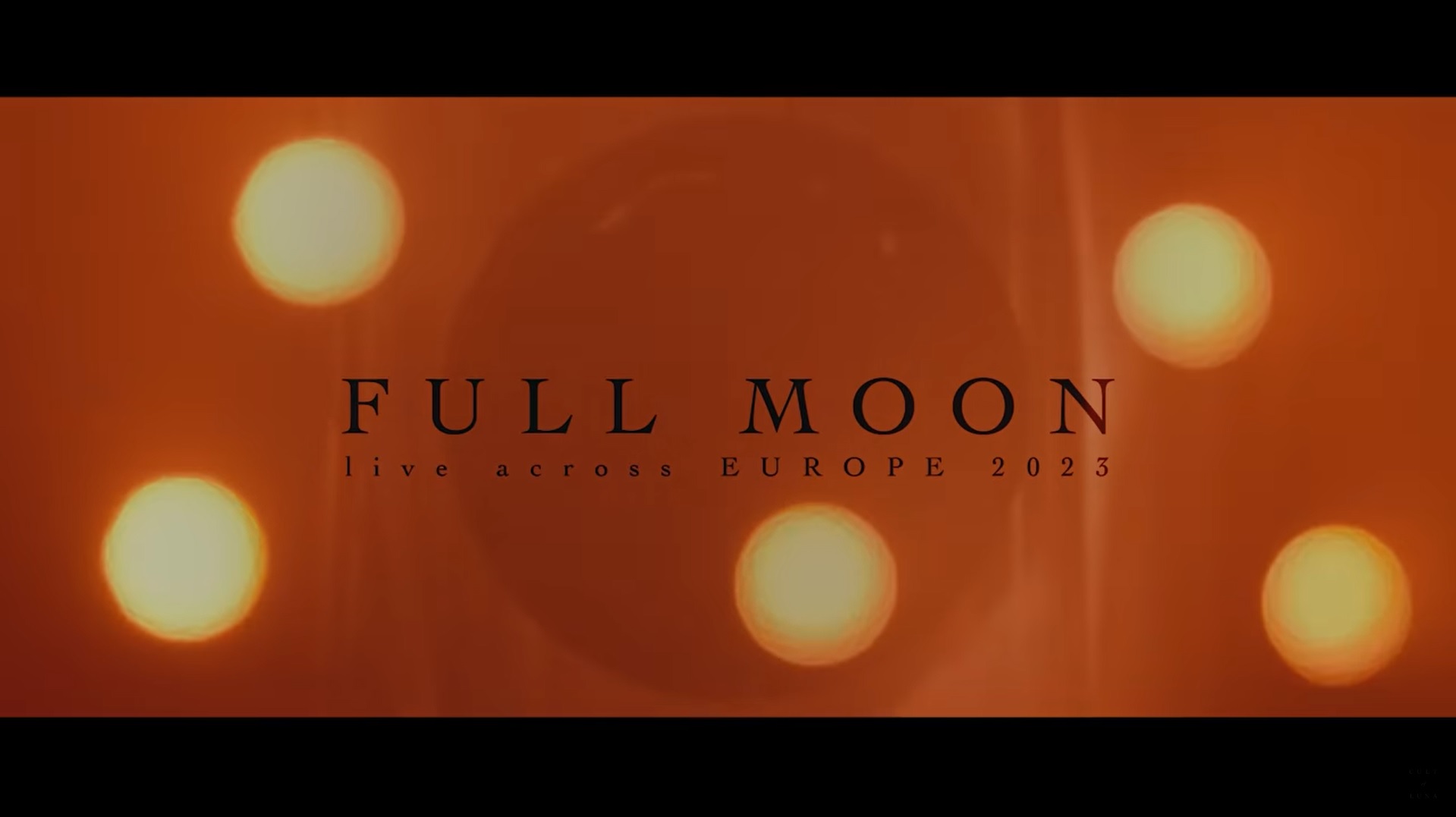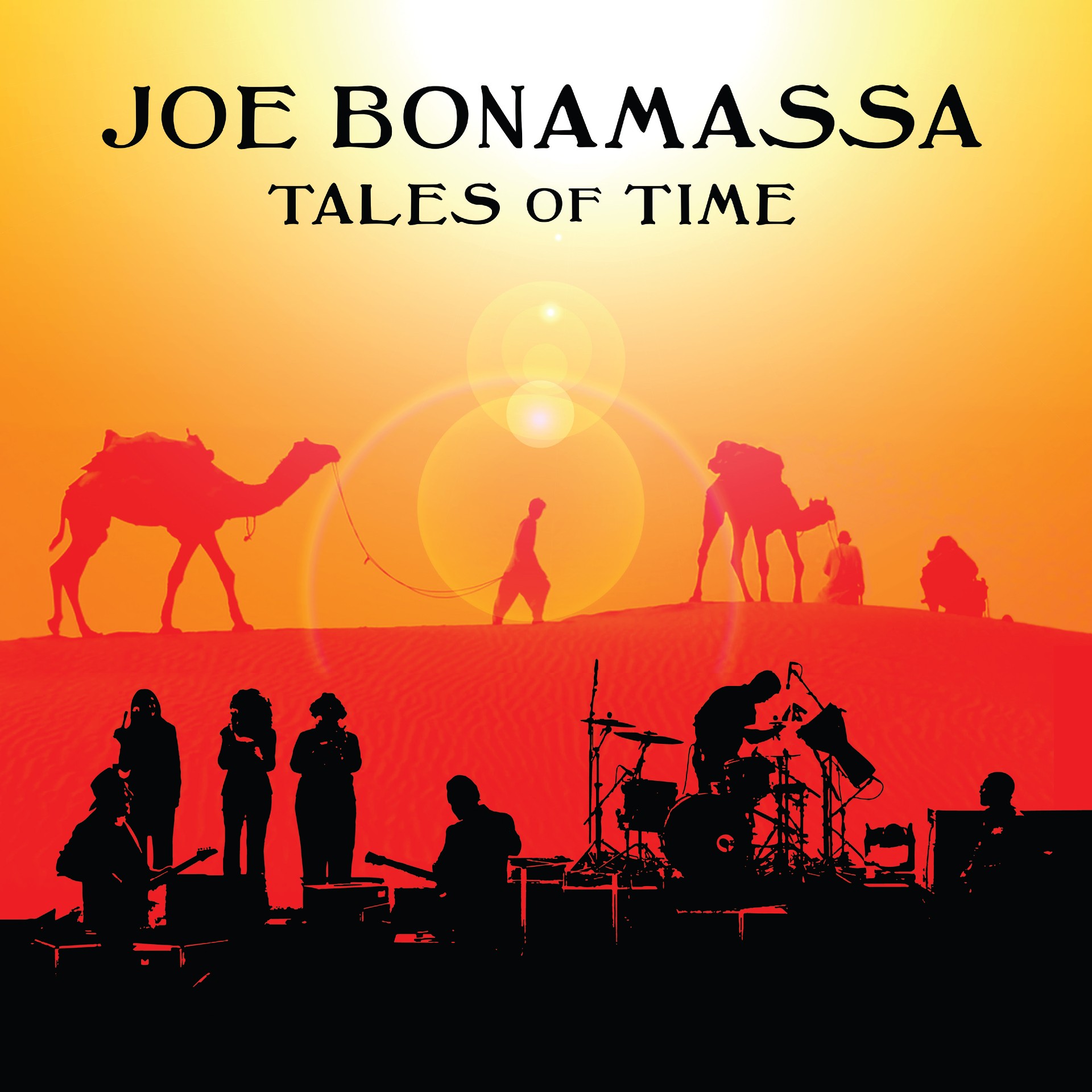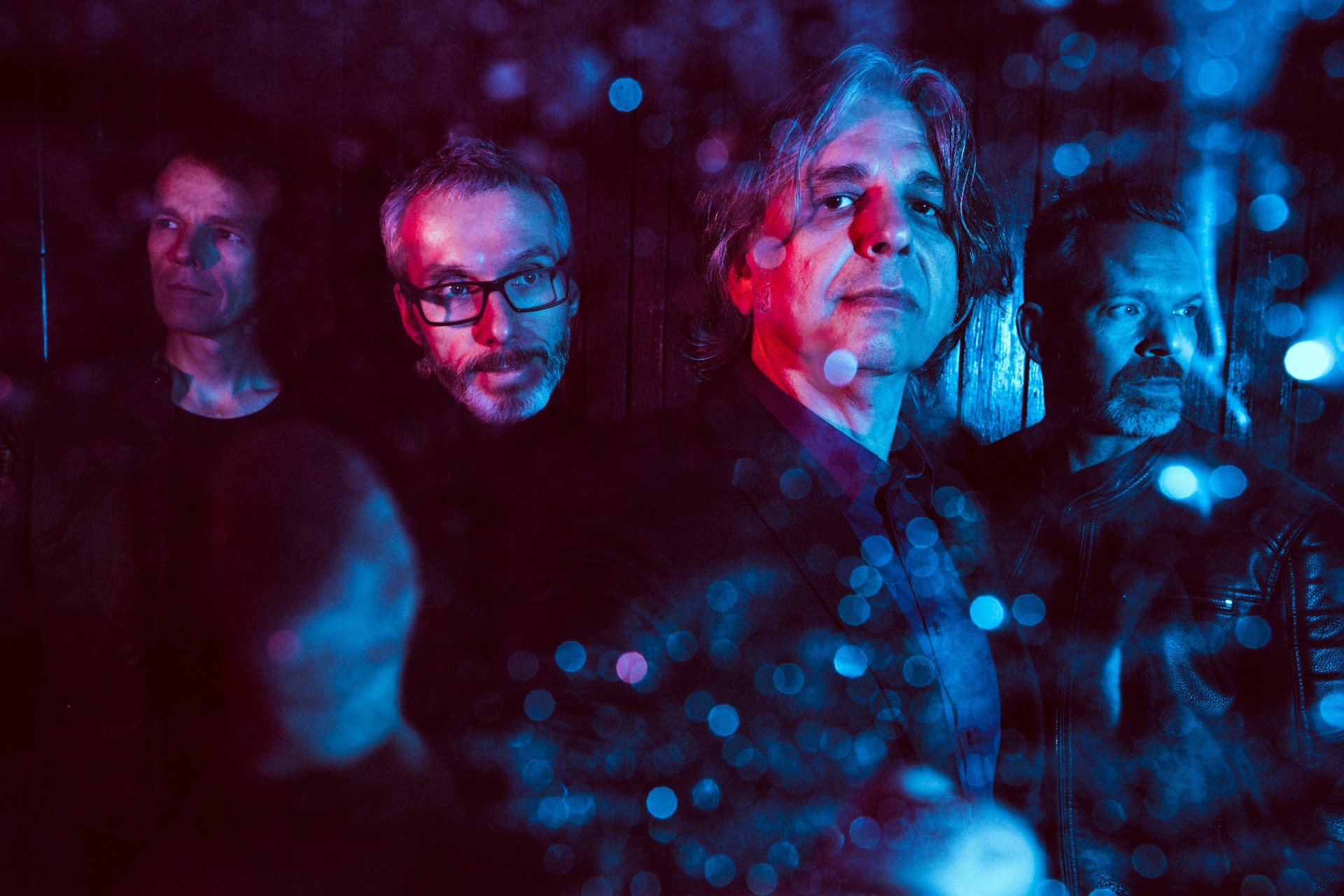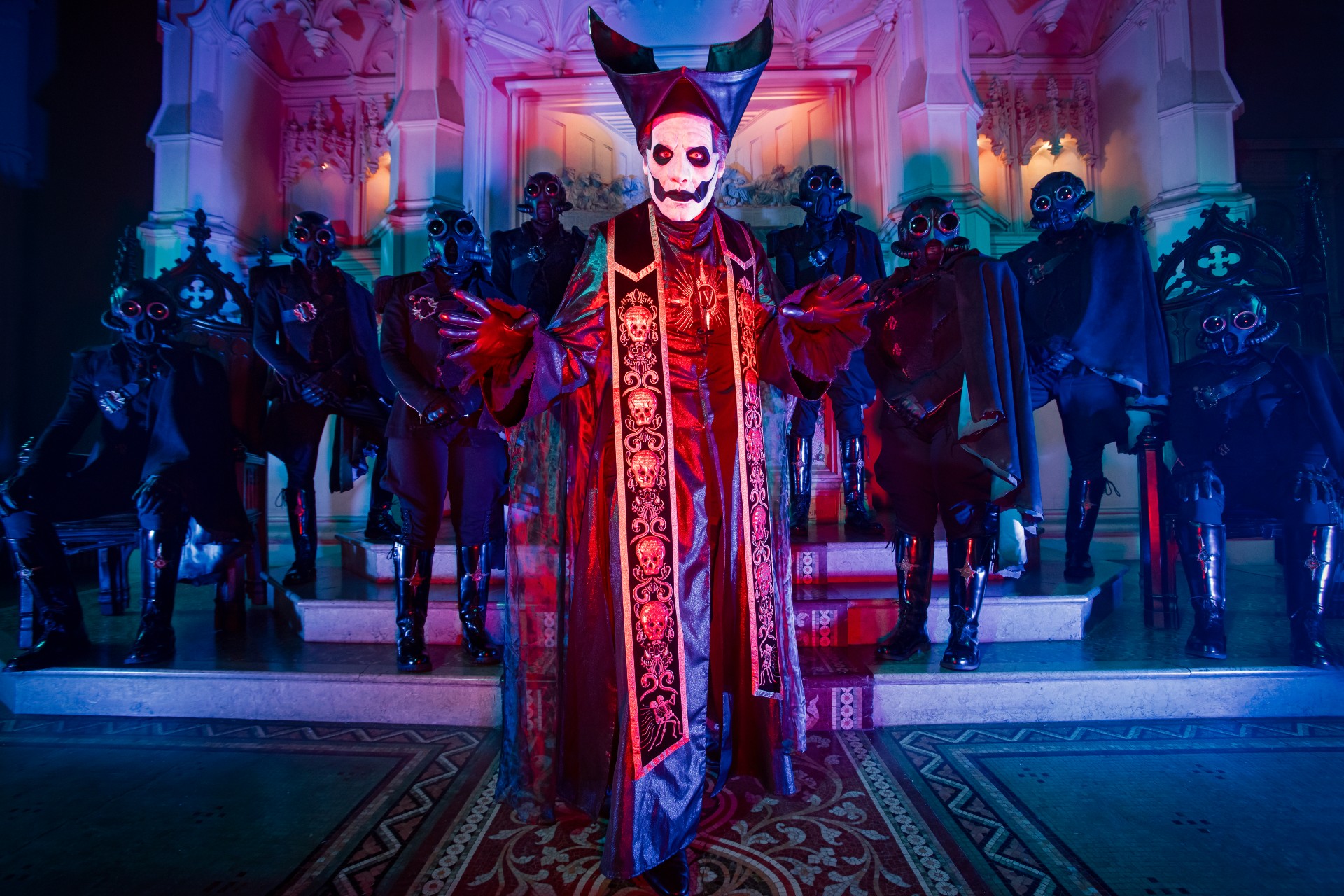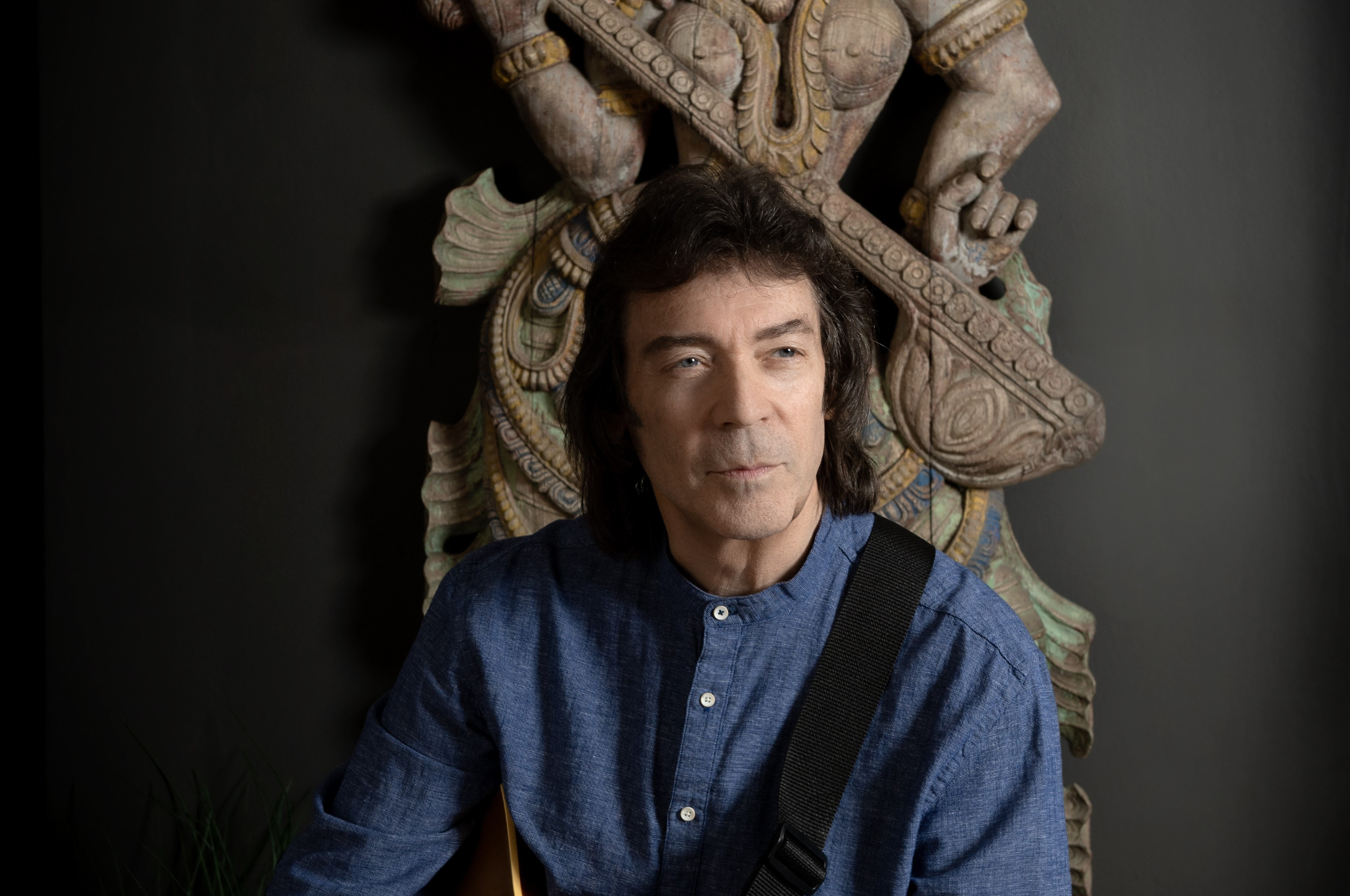Interviews
Steve Hackett on Crafting Tour Setlists, Canadian Genesis Fans, and Servicing the Band’s Namesake
Steve Hackett took some time out of his busy schedule to chat about many things both solo and Genesis-related, revealing many of the Genesis/solo songs he plans to play on this upcoming set of live dates.
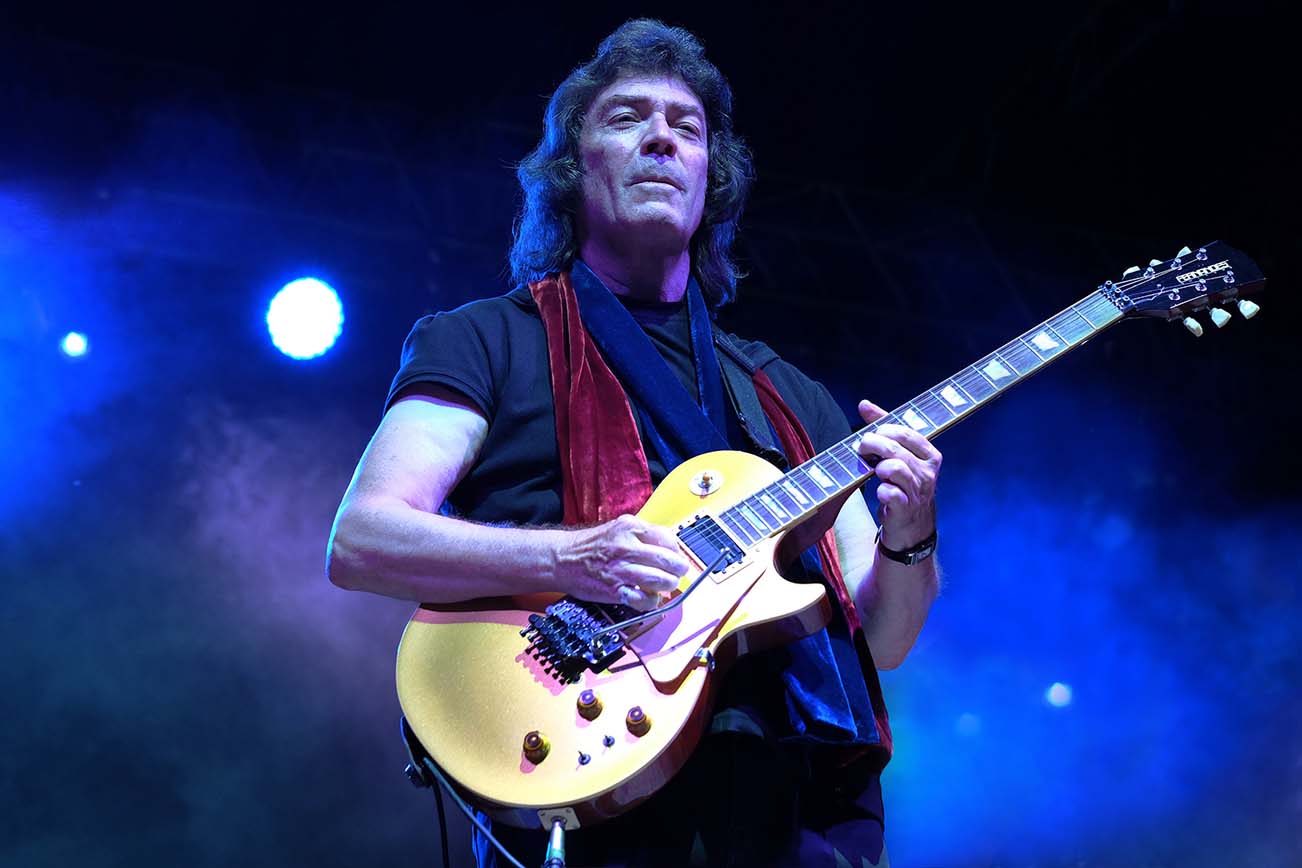
Distilling the musical prowess of guitarist Steve Hackett is not something easily done. A virtuoso musical talent, Hackett was the lead guitarist with Genesis in the early 1970s, contributing to the key albums considered the world over to be their finest. After Genesis, Steve went onto formulating an impressive body of work as a solo musician while also forming the successful GTR project with Steve Howe in the mid-1980s.
Hackett’s praises are often sung by luminaries like Eddie Van Halen, Brian May, Alex Lifeson and Steve Rothery (Marillion, a band that emulated the stylings of Genesis majestically on their earlier albums). He has a natural approach to creating music that many musicians can only aspire to. He’s been making beautiful records on a regular basis since leaving Genesis. His most recent solo effort (his 25th at that) The Night Siren is an inspired piece of prog mastery and belongs on the shelves of any music fan carrying a torch for more modern bands like Tool and Steven Wilson.
Hackett, soon to head out on the road to service this latest album along with a battery of classic Genesis tracks, will touch down here in Canada on four dates. Saturday, February 10th (Le Palais Montcalm), Sunday, February 11th (Place Des Arts Theatre Maisoneuve, Montreal, QC), Monday, February 12th (Massey Hall, Toronto), and Tuesday, February 13th (Le Theatre Du Casino Du Lac-leamy, Gatineau, QC).
Additionally, on Friday, January 26th, Hackett will release Wuthering Nights: Live in Birmingham – a 2CD / Blu-ray capturing last years tour marking the 40th anniversary of Wind & Wuthering, Hackett’s last album with Genesis. To celebrate, Steve and his band played 5 of the best-loved tracks from this iconic album: “Eleventh Earl Of Mar,” “One For The Vine,” “Blood On The Rooftops,” “…In That Quiet Earth,” and “Afterglow.” Those songs are included on this set, along with numerous other Genesis classics.
Watch Hackett’s official music video for the single “Behind The Smoke”.
Hackett took some time out of his busy schedule to chat with PureGrainAudio about many things both solo and Genesis related, revealing many of the Genesis/solo songs he plans to play on this upcoming set of live dates. That interview follows here:
Can we start off by having you talk about your touring band for these upcoming tour dates in 2018? How did you meet these guys?
Steve Hackett: Sure. Well, it’s a band that I’ve been touring with for quite some time now. They are a great band. And it’s got the addition of a new guy who is playing bass for us from Sweden. So I’ve got two Swedish guys in the band. This guy is Jonas Reingold. I haven’t worked with him before, but he’s a legend amongst bass players. And I have a Swedish singer called Nad Sylvan. I should explain that Nad sings the Genesis stuff. But I do the solo stuff and do half the Genesis stuff and we do a little bit of GTR as well. So the rest of the guys in the band are Roger King on keyboards, Rob Townsend on all of the wood/wind and the brass stuff, Gary O’Toole on drums (who also sings) and as I said, Nad and Jonas. So, with me, that’s the entire band.
Roger, Gary, Ned and Rob all contributed to your last album The Night Siren, if I’ve got my information correctly.
Hackett: That’s right. Yep.
Are you planning on including of the material from that latest album on this tour as well?
Hackett: Yes. We are going to do some stuff from that album. To my recollection, we are doing three songs. We are doing “Behind the Smoke,” “El Niño,” and “In the Skeleton Gallery.” We’ll do those three. I’ve played those live earlier this year, and they all went down very well. I’m very much looking forward to doing them again.
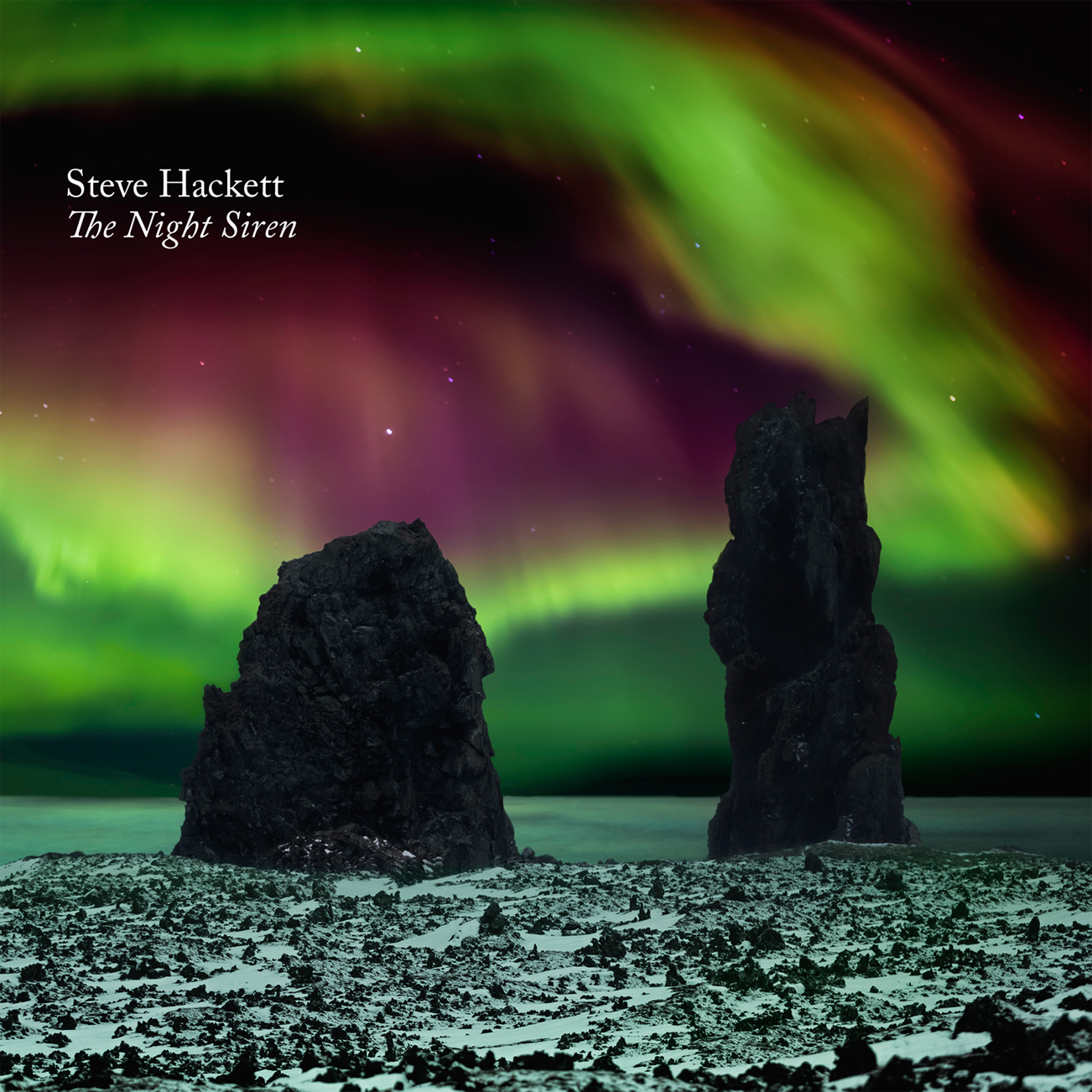
I’m assuming those three cuts will also be included on your new 2CD/Blu-ray release Wuthering Nights: Live in Birmingham as well.
Hackett: That’s right, yeah. Those three are in it. So that’s part of it, yeah. It’s a slightly different set, the one that we will be doing. The one on the forthcoming Wuthering Nights show – that one really had a lot of Wind & Wuthering on it because it was the 40th birthday of that album. So it was celebrating that stuff. Whereas this tour we’re doing a little bit from “Please Don’t Touch.” We’ll do the title track from that one. And also “Icarus Ascending.” Also from Please Don’t Touch because that will be it’s 40th birthday as well. I like to do a little bit from those anniversary styled things.
You musical output is so vast, I imagine compiling a setlist for touring must be truly a challenge.
Hackett: It is really. You don’t really know what to leave out. A lot of times people will be really happy if I just did Lamb Lies Down On Broadway in its entirety. But what I tell people is “Well, the fact is that there are many albums, and there are many favourites, so I get to celebrate a little bit of 1973 with Selling England By the Pound by doing “Dancing With the Moonlit Knight,” and “Firth of Fifth” from that album. We do a couple of tunes from Wind & Wuthering – “One For the Vine” and “Inside and Out,” which should have been on the album, but wasn’t. There’s also stuff going back to Nursery Cryme and Foxtrot along with various other things. It’s a tour that we do “Supper’s Ready” in its entirety. A lot of people have asked for that time and time again. People have said “Can we have that? The number that was getting close to a half an hour long?” It’s from Foxtrot from 1972.
That’s a long cut.
Hackett: We want to keep everyone happy, but it’s an impossible task. It just means that next time I’ll say we’ll have to include some of the songs we missed out on this round. There’s an awful lot of ground to cover.
Do you find that there are songs that you always keep in your rotation when you are touring? Or is it something that you shuffle up completely?
Hackett: We do shuffle them all around, but it’s hard not to do “Firth of Fifth” because it’s arguably Genesis’ most famous guitar solo. It’s the one that’s most iconic. So I tend to do that, and it’s got a fair amount of audience participation in it. So that usually works very very well.
Hear “In The Skeleton Gallery” right here.
If you can, could you describe what your rehearsals are like – when you get all of your touring band-mates together and you start running through the material? Is it something that comes quickly, or does it take weeks to nurture?
Hackett: I think that because we have a new guy, we’ve got Jonas, um, because he won’t be just doing bass parts, he’ll be doing guitar parts as well, until you are actually face-to-face, it’s very difficult to break down some of those parts. To say “Oh, what’s happening there?” because their might be three twelve string guitars all chiming away at once. Which is a part of that early sound in the band. So I think we’ve got about ten days rehearsal. I think the rest of the band could probably cover it in almost an afternoon, but I want to give him the time that he needs to do this. So it’s probably more than we need, but even so, it’s a lot for a new guy to remember. I think if this was a jazz set or a blues set, he’d probably go “yeah, that’s probably right, you know? We can do that in a couple of days.” But sometimes guys walk in and get it perfect. Like when we were working with Lee Pomeroy on bass, who is in the new line-up with Yes. Well, one of the line-ups with Yes. The first time I ever worked with him we just ran through the set once. We disagreed about one note. Which was wrong on the original record. So he’d learned the wrong note. That’s how close it was. Some guys have got photographic memories. They think they know everything better than you know yourself. These are the kind of guys that I like to work with.
Would you describe yourself as somebody who is always writing music?
Hackett: Yes, I’m always writing music. Yeah. Um, I’ve got the annoying habit of waking up at three in the morning and having a brilliant idea. Or so I think. That prevents me from going back to sleep and then I’ll eventually get up and write it down. I try not to do too much of that. I’ll do breathing exercises halfway through the night just to sort of get myself off the trajectory. Get myself off the treadmill. But whenever the muse alights, you’ve got to honour it, really.
Do you find that you approach your writing any differently than you did say fourty years ago?
Hackett: Oh absolutely yes. But I think that these days I just wait to hear it in my head and then I write it down. I don’t force it. I wait for it to come that way. When I’m recording, which is synonymous with writing, I’ll play things over and over again until it sounds like I’ve got the right guitar part. Whereas I think, you know, as the much younger player I tended to do things much more consciously. I didn’t wait for the moment where inspiration might strike. That’s what I do now. I wait for it to naturally start to replay itself in my mind. As I say, I don’t force it. So I like to think of myself as a receiver. I’m a telephone line to who knows where, but until I hear it through that receiver, I don’t usually do it. It’s got to start writing itself somehow.
If you can, do you have an aspect of modern technology that has changed the way that you compose and approach music?
Hackett: Well, I think computers have changed things tremendously. At one time, you tended to take the rough with the smooth. But now, because you can go back and stop and start, and have a limitless amount of tracks if anything looks remotely good, we keep it. If we do another take and it seems to be more polished, particularly with vocals, which I was working on today, if I don’t get it any better than the rough, I will stick with the rough and try and polish up that, of course. Technology affords you the ability to be able to take something, compress it, stretch it, tune it, stick vibratos in where there were none if that’s what it takes. So I only ever try and get things roughly right with the vocals. And then we do other things. Sometimes I’ll sing a light harmony to a song, and if that’s good, then we’ll use it. Other times if I’m struggling with that, I might clone a harmony which computers allow me to do. Sometimes I’ll use the real harmony and the cloned one, and it makes for a very impressive effort in the end. I’m always amazed. Like today, I was singing something and it sounded really flat and boring and then by the time we’d finished with it, it sounded magnificent, I have to say. But you have to throw yourself into that. You’ve got to go through the agony of sounding very human at first, and then you work on it with the aid of technology. Computers have revolutionized things in many ways allowing me to work to a standard I could have only joked about fourty years ago.

It sounds like you are describing some new material. Are you in fact readying stuff for a new album?
Hackett: Yeah, I’m several tracks into a new album that may be finished sometime next (2018) year. But it may come out the following year (2019). I don’t know. There wasn’t a hurry to do this at the moment. But I believe that by not hurrying, and taking the pressure off myself, I think that I come up with better stuff that way than dealing with pressures like “I’ve got to this, and I have to have three albums out next year.” I don’t want to put myself under that kind of pressure.
What do you think has been the easiest album for you to write in your career Steve? And why do you think that it came so easily?
Hackett: Well, I’ll tell you what. I just finished doing an album with a band called Djabe. They are a Hungarian band, and we just jammed together for three days in Sardinia. Now they took that raw material away and worked on that for about three months. So, things that were throw away became thematic. I said they are Hungarian. They are Hungarian with the exception of the drummer, he’s from Iceland – a guy called Gulli Briem. They are an interesting band. They are a band I usually do a handful of gigs with them often in eastern Europe. They are kind of like a research facility for me because I get to work with guys who are from Gyor, guys who are from Africa, and we meet at these sort of crossroads of Europe, which is Budapest. So I would say that is the easiest album that I have ever done. It was only three days of my time. And it actually sounds really good. It’s not a solo album. It’s a band album. That was one of the easiest. Not counting live albums of course, where obviously the easiest one was the Genesis live which was a King Biscuit Flour Hour thing where we were just playing our normal set and we didn’t know that was going to be an album. But it happened to sound really good at the time, and in fact, I think it sounded a lot better than the album version. We’d gotten the tempo sort of down by then. Genesis Live is a really good early album.
What can you tell me about Steve Hackett as a teenager? Do you reflect on this period of your life and see things that shaped you towards your career?
Hackett: Yeah, I think so. I was always an idealist. I had dreams that were way beyond my capability as a young player. I listened to lots of kinds of music. And apart from that, I went through the normal things that a teenager does. You know, including too many spots on the face. Not being particularly successful with girls. I was a bit nerdy. I spent a long time locked away in the bedroom trying to get my fingers around various riffs and it would probably be early Beatles and early Stones. Bob Dylan. A lot of that stuff. And I think I spent the later part of my teens at a number of jobs. Four or five years of odd jobs before Genesis. I always wanted to be employed. I didn’t want to be a sponger. Which meant the odd jobs for when I was at school. The real work started once school finished. I was back home and I was able to get the guitar out. I had massive amounts of energy in those days. I was able to work all hours under the sun and still have a full nights sleep and get up the next day and do it all over again. That’s what I was like as a teenager.
last October the Genesis catalog was repressed and re-issued on vinyl. Was anything extra put into those editions? Was it just a straight repressing?
Hackett: The stuff that was on vinyl?
Check out the “Wuthering Nights: Live In Birmingham” official trailer.
Yeah. I found it on Pledge Music. You could sign up for it and get these editions with updates on production.
Hackett: Right. Well, I’ve gotten various boxed sets of Genesis stuff. I think the vinyl is probably less comprehensive than the boxed sets which is CDs. Yes, there are anomalies in all of those, and there are extras. So I would say if you love the touch and feel of vinyl, then yeah, go ahead. That stuff sounds better on vinyl now than it ever did because of technology. It’s cleaner. At least the ones I’ve heard. If it’s the completist aspect, then really, it needs to be the boxed sets. And there are several of them. There are three that come to mind. Actually, I think there are four because there is live stuff as well. So yeah, you get all of the studio albums and all of the live stuff. So that’s from, ooo, 1968 onwards, I guess.
In the time that has passed since Genesis disbanded, it feels like you have really carried the bands’ namesake along over the course of your career. You’ve played numerous live outings and you keep a lot of the material in your live sets. I’m not even sure if there’s a question there. Thank you for that.
Hackett: I do do that. In the early days, I was doing my own stuff and I might have thrown in one number from Genesis. Maybe “Horizons” – that’s something I wrote. Or sometimes I’d do what I liked as an encore. In recent years, I’ve included more Genesis, and done the Genesis Revisisted shows. Sometimes with a band, sometimes with orchestra. Both on record and live. There doesn’t seem to be any distinction for me between that. I feel like I can carry a torch for that stuff because I think it was exceptionally well written. I’m very proud of that. And I keep meeting people who are working different genres within music. For instance, there’s a very fine operatic tenor singer who’s very famous in England called Alfie Boe who was telling me how symphonic he thought the early work of Genesis was. I’m amazed that the classical world has any knowledge still of Genesis. But many people who are virtuosos in their own field often cite Genesis as an influence.
I feel like there are a lot of milestones, anniversary editions, reunion tours, this kind of thing happening with bands that were around at the same time that Genesis was active, in the sixties and seventies, but to me it feels like Genesis is one of the bands that’s being serviced the least in that regard.
Hackett: Well, that’s why I think that despite the best efforts of many of us, the idea of reforming the period of Genesis that was the classic version, even though I’ve been approached to do that by the band, it usually doesn’t produce any firm decisions, you know? There’s no fruit on that particular tree. So all I can say is if that ever happens, I’ll be open to it. But meanwhile, I want to honour the work and do it without agenda. Hopefully without ego, and say this is what I consider to be the best of Genesis. And I may even consider at some point doing another Genesis Revisited. To my mind, it’s not just the period of the band that I was involved with, but there are some things that were recorded at least a year before I joined on Trespass that I think are fine tunes. But I would even consider doing some of that. So indeed I do it without ego. It’s not just the stuff that I wrote. I want the best of the band, and there’s so much great stuff there. I still don’t think that the definitive versions of much of that stuff have been recorded. I’ve had singers say that to me, you know, it’s a great song, but what about doing a re-record? Occasionally I’ll work with a team of fourty different people, most of whom are singers doing a Revisited thing with orchestra and what have you. So I think that’s classic, and I’m trying to keep that stuff alive for people. I’ve been lucky. I’ve been able to fill the Albert Hall doing that stuff. Yeah. It feels good. It’s still got legs. And I think that it’s probably going to sprout wings in the future. It’s important to honour all of that.
It’s interesting that you have three dates that are in the Quebec area to kind of start off this tour.
Hackett: Yeah. It’s funny that, isn’t it? I think that French Canada was one of the first territories to respond to the stuff that we were doing in the early seventies. Often in those days, Canadian tours funded losses that we were making in the rest of North America. It made things possible, luckily. And so in that sense, it’s always felt like coming home to an audience that really understands that stuff. It was precious to them then, and to me, and it’s still precious now.
-

 Music6 days ago
Music6 days agoTake That (w/ Olly Murs) Kick Off Four-Night Leeds Stint with Hit-Laden Spectacular [Photos]
-

 Alternative/Rock14 hours ago
Alternative/Rock14 hours agoThe V13 Fix #011 w/ Microwave, Full Of Hell, Cold Years and more
-

 Alternative/Rock1 week ago
Alternative/Rock1 week agoThe V13 Fix #010 w/ High on Fire, NOFX, My Dying Bride and more
-

 Features6 days ago
Features6 days agoTour Diary: Gen & The Degenerates Party Their Way Across America
-

 Culture1 week ago
Culture1 week agoDan Carter & George Miller Chat Foodinati Live, Heavy Metal Charities and Pre-Gig Meals
-

 Music1 week ago
Music1 week agoReclusive Producer Stumbleine Premieres Beat-Driven New Single “Cinderhaze”
-

 Indie14 hours ago
Indie14 hours agoDeadset Premiere Music Video for Addiction-Inspired “Heavy Eyes” Single
-

 Alternative/Rock1 week ago
Alternative/Rock1 week agoThree Lefts and a Right Premiere Their Guitar-Driven Single “Lovulator”

